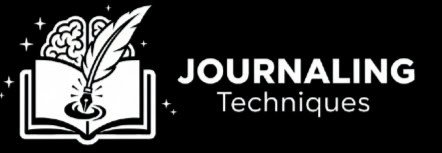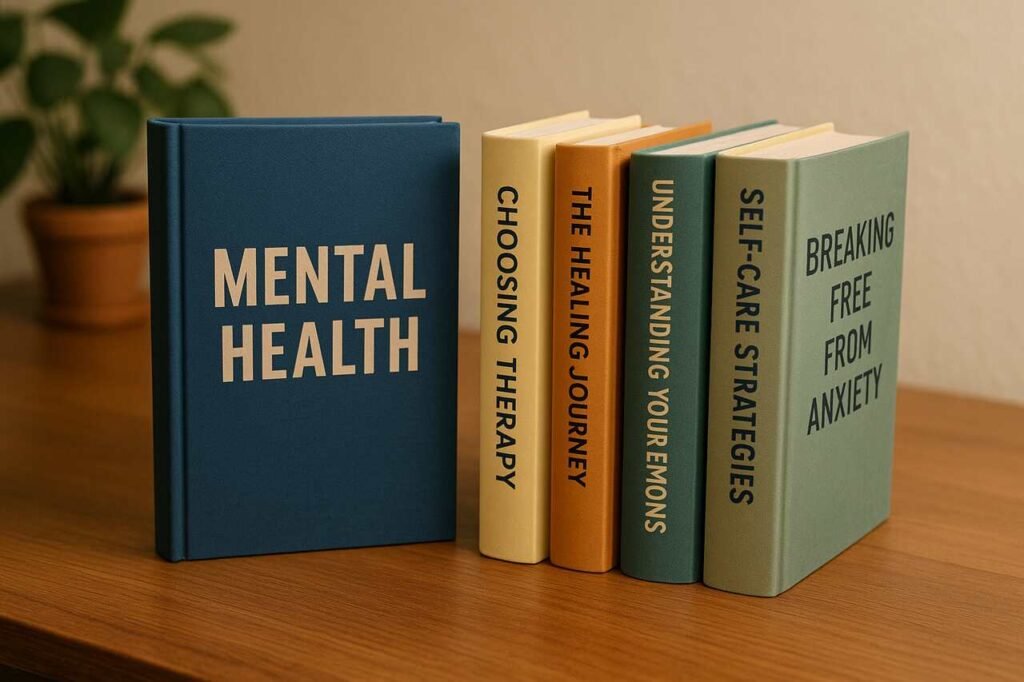Books about mental health serve as vital tools for personal growth, emotional awareness, and long-term resilience. They bridge the gap between clinical psychology and everyday experience by helping readers understand common conditions, behavioral patterns, and therapeutic frameworks. This guide provides a complete, deeply structured exploration of how to select, evaluate, and apply mental health literature in a meaningful way.
Identify the Core Mental Health Topics That Books Commonly Address
Selecting the right books about mental health begins with identifying the core topics you need clarity on. Readers often seek support around anxiety, depression, trauma recovery, emotional regulation, or relationship health. Understanding your primary focus allows you to filter literature based on your personal goals and present emotional challenges.
As you evaluate core topics, consider the foundational elements such as symptom recognition, cognitive patterns, emotional triggers, and behavioral responses. Many books categorize content into psychological frameworks like CBT, DBT, mindfulness practices, or attachment theory. Knowing the general structure helps you determine whether the material aligns with your level of familiarity and learning preferences.
The broader context of mental health literature includes both clinical and nonclinical perspectives. Clinical books dive into diagnostic criteria, therapeutic interventions, and evidence-based strategies, while general self-help books emphasize personal stories, lifestyle strategies, and relatable narratives. This variation allows readers to engage with the topic at the depth most suitable for their needs.
Review the Main Psychological Conditions Covered in Popular Books
Psychological conditions frequently represented in books include generalized anxiety disorder, major depressive disorder, PTSD, bipolar disorder, obsessive compulsive disorder, and personality pattern disruptions. Authors often provide case studies, symptom breakdowns, and treatment modalities that support understanding of each condition.
Evaluate Whether the Book Focuses on Self Help or Clinical Insights
Some books rely on clinical evidence and structured interventions while others emphasize lived experience, narrative healing, or emotional storytelling. Readers should choose based on whether they want guidance, validation, or technical knowledge.
Select Books Authored by Credible Mental Health Professionals and Researchers
Credibility is a critical factor when choosing books about mental health. Licensed psychologists, psychiatrists, neuroscientists, and clinical social workers present information grounded in evidence-based research. Their credentials ensure that the recommendations, frameworks, and ideas are scientifically supported and ethically aligned.
Evaluating expertise involves reviewing the author’s professional background, research contributions, clinical experience, and affiliations. Many trustworthy authors are involved in psychotherapy innovation, academic research, or mental health advocacy. Books that cite recognized psychological theories or therapeutic modalities often provide structured value.
Contextual relevance also matters. While professional authors offer clinical expertise, authors with lived experience provide personalized perspective and authentic storytelling. A balanced reading list often includes both types, blending scientific rigor with emotional relatability to create a multidimensional understanding of mental well being.
Check the Author’s Academic and Clinical Background
Identify whether the author holds degrees in psychology, psychiatry, neuroscience, or counseling. Clinical certifications and years of practice add credibility to their guidance.
Look for Evidence Based Methods Presented by the Author
Books that reference CBT, DBT, ACT, interpersonal therapy, or trauma informed care indicate that the content is rooted in validated therapeutic frameworks.
Compare Genres of Mental Health Books That Support Different Learning Styles
Mental health books exist across several genres, each tailored to unique learning preferences. Some readers benefit from workbook style formats with exercises and reflections. Others prefer narrative nonfiction, memoirs, or scientific analysis. Understanding your learning style increases the likelihood of sustained engagement and comprehension.
The structure of each genre varies. Workbooks prioritize step by step strategies and practical applications. Memoirs emphasize emotional storytelling. Scientific texts offer detailed brain based explanations and data interpretation. Self help books combine simplified psychology with everyday examples to create accessible pathways for mental health improvement.
Genre selection is also influenced by emotional readiness. Readers managing acute distress often prefer gentle, validating narratives while those seeking active change may prefer structured therapeutic frameworks. Always choose a genre that aligns with your current mental capacity and support needs.
Explore the Differences Between Workbooks and Traditional Self Help Books
Workbooks involve active participation and practice while traditional self help books focus more on explanation, insight, and narrative teaching.
Consider Whether You Prefer Memoirs or Scientific Analysis
Memoirs offer emotional connection and relatability. Scientific books provide logic, structure, and detailed understanding.
Evaluate the Therapeutic Frameworks Commonly Presented in Mental Health Literature
Many books about mental health revolve around recognized therapeutic models. These frameworks provide structured ways to rethink emotions, behaviors, and thought patterns. Familiarity with therapeutic frameworks helps you choose books that align with your goals, whether you seek emotional regulation, trauma healing, or cognitive restructuring.
Common therapeutic models found in mental health books include cognitive behavioral therapy, dialectical behavior therapy, acceptance and commitment therapy, internal family systems, and mindfulness based stress reduction. Each model focuses on specific psychological mechanisms such as thought distortion, emotional resilience, or somatic grounding.
Considering broader context allows you to understand how frameworks interact. Some books integrate multiple modalities, offering hybrid approaches for more holistic healing. For example, a book may combine mindfulness with CBT principles to address anxiety from both cognitive and physiological perspectives.
Examine Whether the Book Uses Cognitive or Mindfulness Based Tools
Cognitive tools focus on thoughts and belief systems while mindfulness tools center on body awareness and present moment grounding.
Identify Trauma Informed Methods in the Book
Trauma informed books emphasize safety, emotional pacing, and understanding of the nervous system’s stress responses.
Organize Your Reading List According to Mental Health Objectives and Depth Levels
Creating a structured reading plan enhances comprehension and prevents overwhelm. Start by defining clear mental health objectives such as reducing anxiety, building emotional resilience, improving relationships, or healing trauma. Books can then be categorized based on your goals, allowing for a tailored reading path.
Reading lists can be organized by introductory level, intermediate depth, or advanced analysis. Introductory books explain concepts in simple language. Intermediate books offer detailed strategies and exercises. Advanced books explore neuroscience, therapeutic models, and complex emotional patterns. This tiered approach ensures gradual growth without cognitive overload.
Context matters when forming long term reading lists. Your emotional state, schedule, and current responsibilities all influence reading capacity. Flexibility is important. A well structured list offers direction but allows readers to shift between lighter and heavier material depending on daily needs.
Structure Your List by Topic such as Anxiety, Depression, or Trauma
Categorizing books by condition helps streamline your focus and ensures each topic receives the depth it deserves.
Separate Books by Beginner, Intermediate, and Advanced Reading Levels
Segmenting by difficulty prevents confusion and builds knowledge progressively.
Apply Insights from Mental Health Books Into Daily Routines
Reading books about mental health is only effective when insights are applied consistently. Practical implementation transforms concepts into meaningful behavioral change. Integrate strategies such as journaling, cognitive reframing, grounding exercises, or emotional tracking to reinforce learning.
Effective application requires identifying key techniques within each book. Many include exercises like thought logs, reflection prompts, breathing techniques, or habit building steps. Practicing these methods helps reinforce neural pathways and supports internalization of new skills.
Daily life integration also depends on your environment, support system, and personal habits. Consistency is more valuable than intensity. Small, manageable steps create sustainable growth and long term resilience. Integrating book based strategies into everyday routines makes mental health maintenance a natural part of daily living.
Create Small Daily Habits Based on Book Recommendations
Use cues like morning routines or evening reflections to incorporate new strategies consistently.
Track Emotional Progress as You Apply Lessons
Monitoring mood patterns and triggers helps reinforce learning and highlights areas needing further attention.
Build a Supportive Environment That Enhances Learning From Mental Health Books
Having a supportive environment strengthens the impact of mental health literature. Surrounding yourself with understanding individuals, structured spaces, and healthy routines enhances your ability to absorb and practice new concepts. External support increases accountability and reduces emotional roadblocks.
Environmental elements include physical space, social context, and psychological atmosphere. A comfortable reading area, a quiet setting, or a supportive partner can drastically improve learning engagement. Community environments such as book clubs or support groups facilitate discussion and perspective sharing.
Context includes cultural norms, personal beliefs, and emotional expectations. Some readers may need to navigate stigma or internal resistance. A supportive environment validates your journey, encourages openness, and nurtures long term emotional growth.
Join Book Clubs or Mental Health Discussion Groups
Engaging with others improves retention and provides valuable insights.
Set Up a Comfortable and Motivating Reading Space
A dedicated reading area encourages consistency and deeper focus.
Comparison of Common Mental Health Book Genres
| Genre | Main Focus | Ideal For |
| Workbook | Step-by-step exercises | Readers wanting guided practice |
| Memoir | Storytelling and lived experience | Emotional connection seekers |
| Scientific Analysis | Brain and behavior studies | Readers who enjoy data and logic |
| Self Help | General psychological guidance | Beginners and casual learners |
Common Therapeutic Frameworks in Mental Health Books
| Framework | Core Attribute | Best Application |
| CBT | Thought pattern restructuring | Anxiety, intrusive thoughts |
| DBT | Emotional regulation | Mood instability, impulsivity |
| ACT | Acceptance and values alignment | Stress, chronic worry |
| IFS | Internal parts understanding | Trauma, identity healing |
Conclusion
Books about mental health offer a powerful path to self discovery, emotional stability, and psychological growth. By choosing credible authors, evaluating therapeutic frameworks, organizing reading lists, and applying insights into daily life, readers can build deep personal resilience and long term mental well being. A thoughtful approach to mental health literature can transform scattered information into meaningful personal change. With a supportive environment and consistent engagement, these books become a lifelong resource for clarity, healing, and emotional empowerment.
Explore more insightful and valuable content on our blog journalingtechniques! Stay updated with helpful tips, expert advice, and in-depth articles that enhance your knowledge.
FAQ’s
Yes, many books provide simple explanations and gentle strategies suitable for newcomers exploring mental well being.
Choose clinical books for evidence based frameworks and self help books for approachable guidance and lifestyle strategies.
Books support personal growth but do not replace professional care. They complement therapy rather than substitute it.
Identify your main goals, preferred learning style, and comfort with psychological depth before selecting a book.
Yes, memoirs offer emotional insight and relatable stories that help readers feel validated and understood.
Most readers see gradual improvement over weeks or months when practicing techniques consistently.

